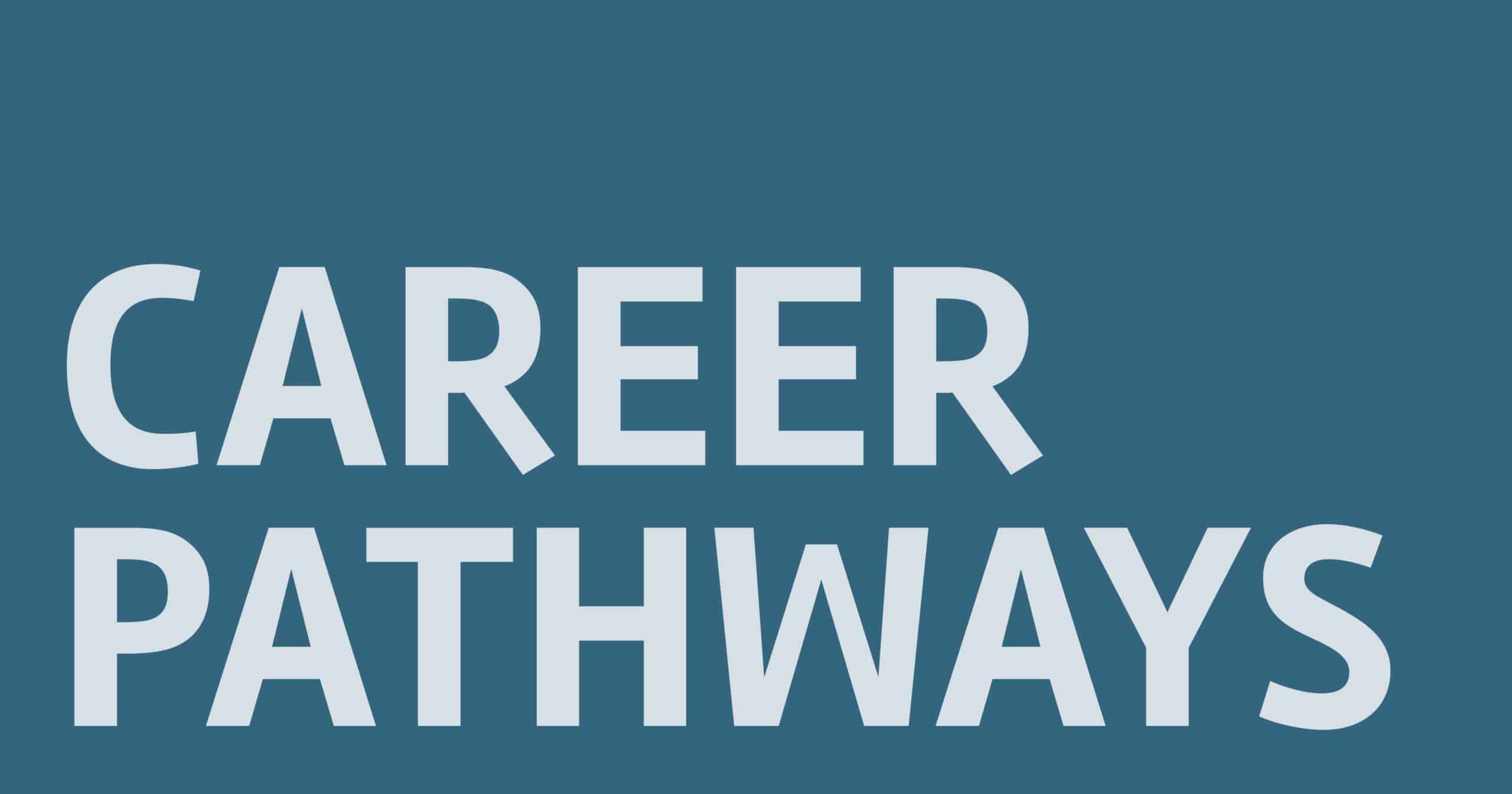Fathers who were forced to stay home during the coronavirus pandemic tell pollsters they became stressed trying to balance helping school their children while working with less-than-ideal resources.
While women may try to stifle a laugh or an eye roll, the million-dollar questions remain: Will dads’ newfound appreciation for multitasking translate into greater support for women professionals? How is this linked to dads’ experiences?
Gender-equity consultancy Have Her Back asked 500 employees of U.S. companies employing 500 or more how they were coping with life and their greatest worries under “the new normal.” The survey took place March 29–30.
Nearly one-third (31%) of the male respondents who are fathers said they found it “extremely difficult” on a 1-to-5 scale to care for their children, families, friends, and neighbors — whichever pertained to their situations — without their pre-pandemic resources. Only 14% of mothers had that reaction, though 36% of moms described their situations as “somewhat difficult.”
“This demonstrates just how previously unaware fathers may have been to the difficulty of the caregiver’s role and the importance of resources such as day care, the educational system, and employer benefits policies that help working women,” the study said.
“The stress of being the schoolwork disciplinarian while working is a new thing [for many dads],” said Pamela Culpepper, who, along with Caroline Dettman and Erin Gallagher, founded Have Her Back.
The firm — the only female-owned company backed by advertising-agency holding company Interpublic Group — strategizes on how businesses can evolve the workplace to help women thrive.
Dads’ new normal may mean figuring out what to do when work competes with children who have grown bored with the iPad® and want immediate attention. Their experiences could unveil a new understanding of how their spouses or partners have managed to “do it all” in the past, Culpepper said.
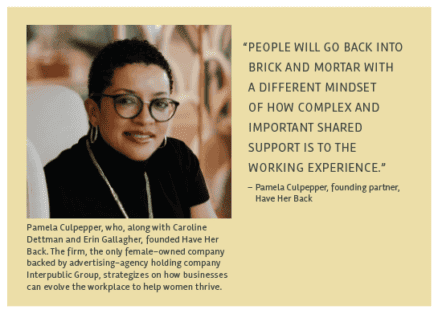
“People will go back into brick and mortar with a different mindset of how complex and important shared support is to the working experience,” she said.
The survey, designed by researcher Hertha Meyer, found that mothers were far more likely than fathers to choose monetary benefits such as a guaranteed income (48% of mothers cited this versus 29% of fathers) and paid sick leave (41% mothers versus 22% fathers) as company resources they most wanted — but hadn’t received.
Fathers in the survey chose the ability to work remotely (40% versus mothers’ 20%) and morale-boosting communications from senior management (38% versus mothers’ 25%).
Meyer noted that more than nine of 10 moms and dads — 93% of each — believe that companies that have supported and cared for their employees during such a historic crisis would be preferred employers in the future.
“They also prioritize a company’s ‘purpose over profit’ when it comes to treatment of employees more now than they did before the crisis,” she said. “There’s a real sense that companies need to take care of their people.”
Reality prevails
For now, reality prevails. Consistent with Have Her Back’s findings, another survey shows that women say they’re shouldering far more of the tough chores — shopping, cooking, overseeing schoolwork, and cleaning house with a coronavirus-resistant vigilance — than are their male partners, if they have a partner.
That’s the result of a survey conducted by media and market research consultant Michele Madansky, Ph.D., lead author of the groundbreaking 2016 report “Elephant in the Valley,” exposing the sexual harassment and other barriers faced by women tech professionals in Silicon Valley.
Women’s overwhelming responsibilities while in pandemic lockdown — 78% said they were primarily doing the cleaning; 74% the cooking, and 63% the shopping — coincided with only 37% keeping any outside help, such as a nanny or babysitter for preschool-aged children — down from an initial 78% pre-pandemic.

To be fair, women — especially the perfectionistic “Type A’s” — need to recognize things might not get done exactly the way they’d prefer — and that’s OK, Dr. Madansky said.
She said she suggests that women with such high expectations refrain from criticizing their husbands’ or partners’ inadequacies and direct the conversation toward a solution. “Where do you think you could contribute more?” might be one way to approach the discussion, she said. “Or ask, ‘What might we be able to do to free up our time?’”
“Think through what those trade-offs could be,” Dr. Madansky said. “Have frozen pizza one night a week. Use Instacart and offer to pay for the delivery and the driver’s tip. Get the kids involved. Give them chores.”
Dr. Madansky said she fears women will become so overwhelmed working remotely with little outside help — given limited-capacity or no child care and uncertainties about hiring in-home helpers with no vaccine available — that they will leave the workforce or skip opportunities for promotion.
So, what will employers do? Dr. Madansky said she sees signs that employers are offering greater flexibility to working parents during the pandemic. “Some companies are not doing performance reviews this quarter or letting employees work late at night if they have a 3-year-old at home,” she said.
Will such policies continue? A hopeful sign has emerged as CEOs as influential as Facebook’s Mark Zuckerberg said he’d been surprised to find that his employees were just as productive, if not more, when they worked from home during the pandemic.
As a result, Zuckerberg said he believes it will be possible for up to half of Facebook’s employees to work remotely permanently over the next five to 10 years. “We need to do this in a way that’s thoughtful and responsible, so we’re going to do this in a measured way,” he told The Verge in an interview May 21.
Flextime: not only for women
Two professors who’ve co-written two books on how men can become powerful advocates for women in the workforce said their latest research shows what, in many ways, is a paradox for the average leader.
“The evidence shows when people are given the flexibility of choosing their office time, they produce more and are more creative,” said Brad Johnson, Ph.D., and David Smith, Ph.D., co-authors of Athena Rising: How and Why Men Should Mentor Women and the forthcoming Good Guys: How Men Can Be Better Allies for Women in the Workplace, to be published in October.
“There are strong correlations between job satisfaction and people making better decisions and fewer mistakes,” said Dr. Smith, a former Navy pilot and associate professor of sociology in the U.S. Naval War College’s national security affairs department.
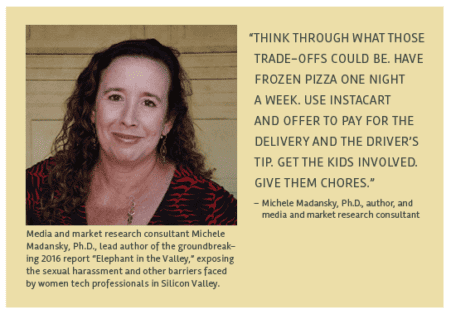
“Flexibility results in more efficiency and productivity,” he said.
Yet before the pandemic, men were less likely than women to use remote and flexible work programs, and were less likely to take a parental leave — even though men had greater access than women to remote and flextime opportunities.
If men took flextime or parental leave, they usually kept quiet about it, Dr. Smith said. “There’s a stigma attached to these programs — they’re considered ‘women’s programs.’”
Dr. Johnson, a psychology professor in the U.S. Naval Academy’s department of leadership, ethics, and law, noted, “The modern workplace was created for men, by men — whether it’s the office temperature or the size of protective gear.”
“The beauty, if there is one, of this shutdown is a lot of men are getting a shocking encounter with what their partners have been dealing with for years and years,” he said.
The co-authors said their research is showing that men are gaining a new appreciation for the importance of and options for child care, and their own ability to save commuting time and workspace expenses by working from home.
“Guys are saying, ‘Wow, what a great find this is,’” Dr. Johnson said. “‘I’m so productive and my employees are, too.’”
Better late than never.
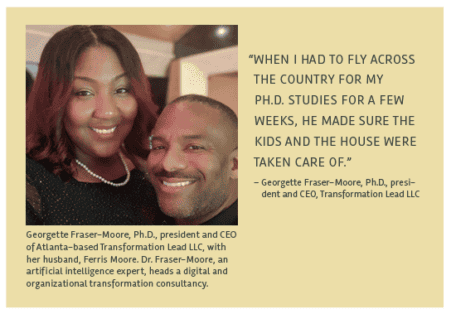
Research for Drs. Smith and Johnson’s latest book, Good Guys, showed that women have long appreciated men in leadership positions who publicly say they value sick leave, family leave, and similar policies, and who urge their senior executives to strengthen and expand those policies — even when the men had nothing to gain.
Men who are already women’s vocal advocates had one of three things in common:
• They’d witnessed a female family member, colleague, mentor, or friend suffer discrimination. “It touched that fairness/justice gene that motivated [these men] to act,” Dr. Johnson said. “These men said to themselves, ‘This is wrong. I have to do something about it.’”
• They understand the business case that ensuring women’s equity in the workplace improves the company’s profitability and/or relationship with the customers.
• They have an inherent sense of altruism and social justice. “Smart leaders say, ‘When are you taking your family leave?’ to reinforce a culture that assumes people will prioritize their families,” Dr. Johnson said. “That’s a workplace where people want to be. It builds organizational commitment.”
Cultivating a “holding” environment
Another leadership trait that’s being recognized as vital in the “new normal” is “holding” — the ability to soothe distress and help others make sense of a confusing predicament.
Gianpiero Petriglieri, M.D., a psychiatrist and associate professor of organisational behavior at graduate business school INSEAD, an acronym for Institut Européen d’Administration des Affaires, wrote about the concept of “holding” for Harvard Business Review.
He said in a phone interview that he studies “the emotional life of the workplace,” and noticed how “we sometimes overstate a leader’s effect on a company’s financial results, but underestimate that leader’s effects on an organization’s psychosocial culture.”
Dr. Petriglieri came across the “holding” theory by reading the theories of psychoanalyst Donald Winnicott, FRCP, a pediatrician who believed that, when children experience nurturing, reliable care, they’re able to regulate their emotions. That, in turn, allows them to think of possibilities, to innovate, and to imagine the future.
On an institutional level, the theory translates into employees who feel secure that they are paid to do their jobs, supported by comprehensive health care policies, and that they and their colleagues are promoted fairly, Dr. Petriglieri said.
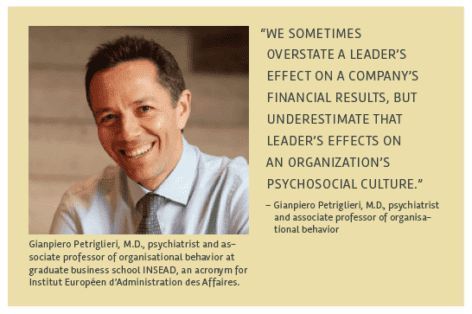
Dr. Petriglieri’s study of people who work independently found their success stemmed from their having built a “holding” environment for themselves — a network and a physical environment that let them perform at their best.
But the idea of “holding” shouldn’t be confused with leading by being kind or “soft and fluffy,” Dr. Petriglieri said. “You have to make sure you provide an environment in which people are reassured and in which people can think straight,” he said. “That sometimes means explaining why you’re making a tough decision such as laying people off. It means communicating clearly.”
Men can be exceptions to the rule not only as leaders and women’s advocates at work, but in the household, too.
Back to researcher Dr. Madansky, who said she earned her Ph.D. from The University of Chicago’s business school at the same time her husband received his bachelor’s degree in philosophy. As she became more involved in digital media and analytics, her career soared.
“It wasn’t a conscious thing,” Dr. Madansky said. When she and her husband moved from New York to the San Francisco Bay Area, he became a stay-at-home dad to their two sons, and remained so for a decade.
In another instance, an artificial-intelligence expert who runs a digital and organizational transformation consultancy says her husband — a mechanic and a UPS worker — grew up with a single mother and happily does the laundry, the housework, the baking and cooking, and, when he accompanies her on a business trip, steam irons her clothes and hangs them in the hotel closet so she can get ready for her meetings without extra fuss.
“He will dust, clean the house — even clean toilets and tubs. He put shelves in the cabinets and in the refrigerator to keep everything in its place,” said Georgette Fraser-Moore, Ph.D., president and CEO of Atlanta-based Transformation Lead LLC, of her husband, Ferris Moore.
“When I had to fly across the country for my Ph.D. studies for a few weeks, he made sure the kids and the house were taken care of.”
So how will the “new normal” be shaped? And who will shape it?
“There are now lots of lessons learned about how men can lean in as full partners at home and how the workplace can be reworked to work for everyone,” said Dr. Johnson, co-author of Good Guys. “And what will we do?”


